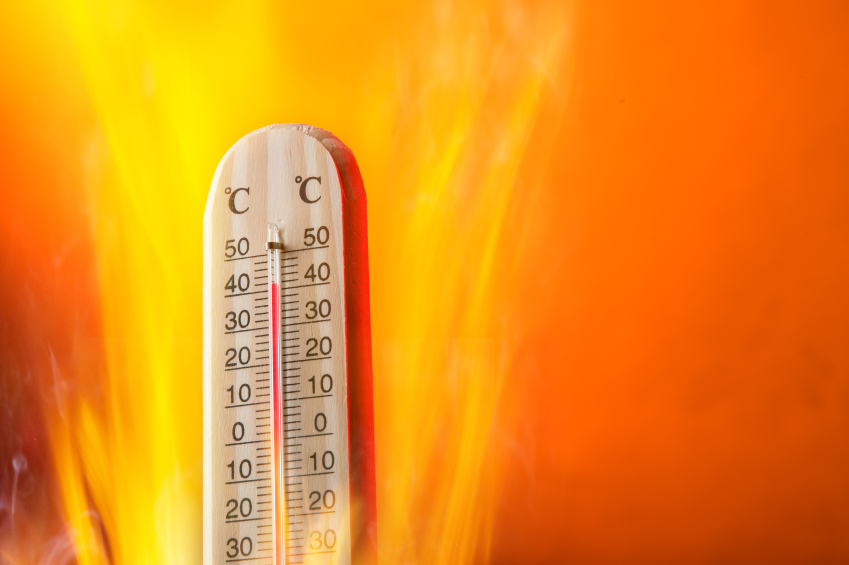The chances of a record-hot year without manmade climate change? About 0.01 percent.

A free daily email with the biggest news stories of the day – and the best features from TheWeek.com
You are now subscribed
Your newsletter sign-up was successful
Mankind is about to have that much tougher a time shirking the blame for recent global heat records, thanks to a new study published in the journal Scientific Reports. Researchers' statistical analysis reveals that there's just a 0.01 percent chance that the recent slew of record-breaking temperatures can be attributed to nature. "Natural climate variations just can't explain the observed recent global heat records, but manmade global warming can," researcher Stefan Rahmstorf told The Guardian.
Of the 15 hottest years on a 150-year-long record, 13 have occurred since 2000, and 2015 was recently declared the hottest year ever recorded. "It has led to unprecedented local heatwaves across the world, sadly resulting in loss of life and aggravating droughts and wildfires," Rahmstorf said of the recent heat's impacts. "The risk of heat extremes has been multiplied due to our interference with the Earth system, as our analysis shows."
This study bolsters a 2013 study by the United Nations' Intergovernmental Panel on Climate Change that found with "95 percent certainty" that humans are the chief culprit of climate change.
The Week
Escape your echo chamber. Get the facts behind the news, plus analysis from multiple perspectives.

Sign up for The Week's Free Newsletters
From our morning news briefing to a weekly Good News Newsletter, get the best of The Week delivered directly to your inbox.
From our morning news briefing to a weekly Good News Newsletter, get the best of The Week delivered directly to your inbox.
A free daily email with the biggest news stories of the day – and the best features from TheWeek.com